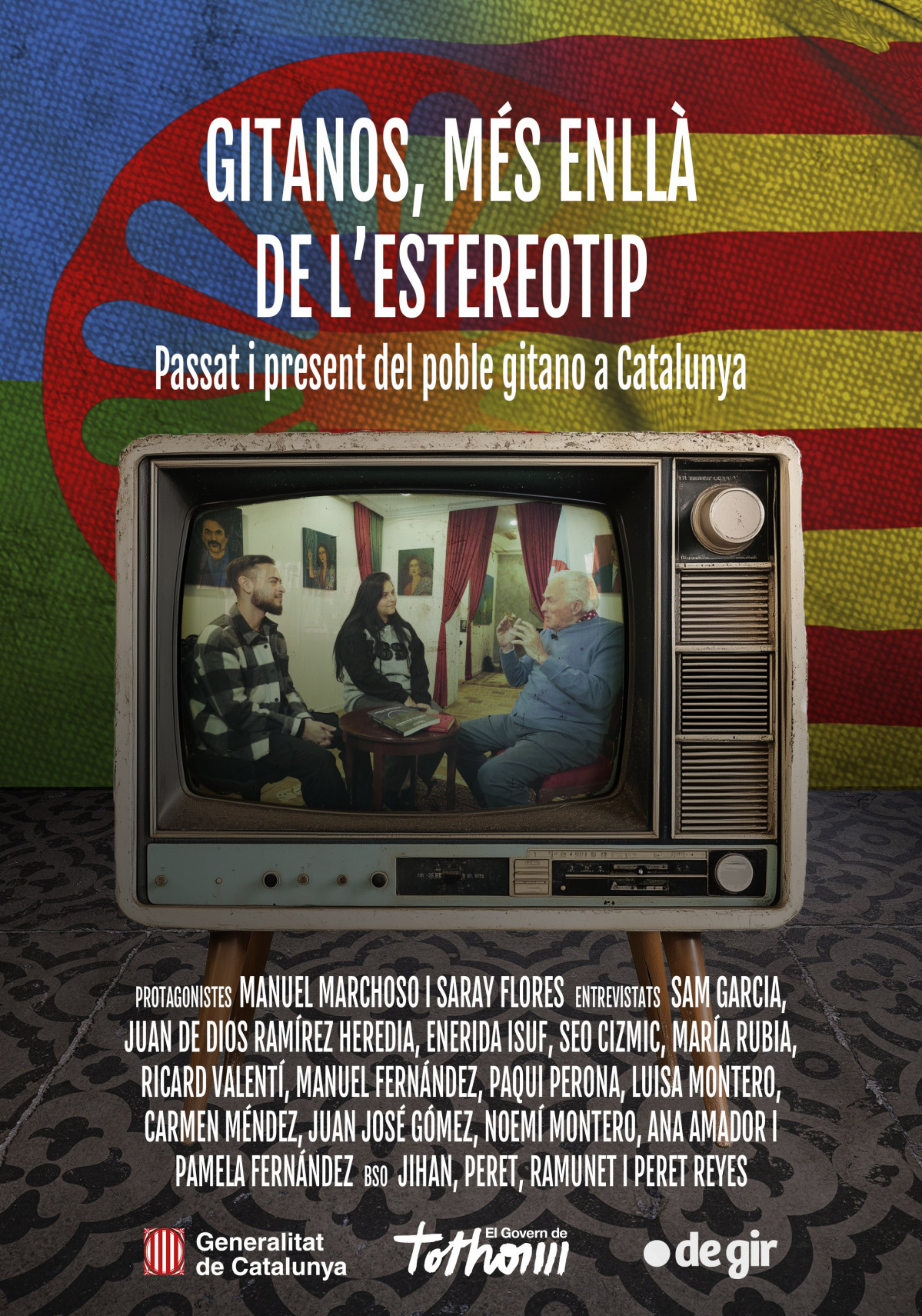El Corazón Desconocido: Una Crítica a "Gitanos: Més enllà de l'estereotip"
ART ESP / ING
Como si de un viaje en el tiempo se tratase, el documental "Gitanos: Més enllà de l'estereotip" nos invita a reexaminar la historia desde una perspectiva que rara vez se aborda en los libros de texto: la del pueblo gitano. Dirigida por Artur Molina Mellado y Helio Valero Pérez, esta obra finalista del Paradox Film Festival es una pieza cinematográfica necesaria, un espejo que refleja no solo una cultura, sino también las grietas de nuestra propia ignorancia colectiva.
Desde el primer minuto, el documental nos confronta con una pregunta esencial: ¿Por qué conocemos la historia de imperios lejanos, pero ignoramos la del pueblo que vive a nuestro lado? A través de las vivencias de Manuel y Saray, dos jóvenes gitanos que emprenden un viaje de autodescubrimiento, la película nos sumerge en una búsqueda genuina de sus raíces. No se trata de un relato victimista, sino de una exploración valiente de su lengua, sus tradiciones y su visión del mundo.
Artur Molina Mellado, con una filmografía que demuestra su interés por temas sociales (como en "Mutilados" o "Primates"), utiliza su lente para desmontar capa por capa los prejuicios que han envuelto a la comunidad gitana durante siglos. Su dirección, combinada con la de Helio Valero Pérez, crea una narrativa íntima y respetuosa, donde la autenticidad de los protagonistas brilla con luz propia. La cámara se convierte en un testigo silencioso de sus inquietudes, sus alegrías y su deseo de preservar una herencia cultural en constante evolución.
"Gitanos: Més enllà de l'estereotip" no es solo un documental, es un acto de justicia poética. A sus 63 minutos, la película nos ofrece una ventana a la riqueza de una comunidad que a menudo ha sido simplificada y estigmatizada. Es una lección de historia, de humanidad y de la importancia de escuchar las voces que han sido silenciadas. Este documental no solo merece ser visto, sino estudiado. Es un paso crucial para desaprender los clichés y empezar a valorar el verdadero corazón del pueblo gitano.
----------------
The Unknown Heart: A Review of "Gitanos: Més enllà de l'estereotip"
As if it were a journey through time, the documentary "Gitanos: Més enllà de l'estereotip" invites us to re-examine history from a perspective rarely seen in textbooks: that of the Roma people. Directed by Artur Molina Mellado and Helio Valero Pérez, this finalist at the Paradox Film Festival is a necessary cinematic piece, a mirror that reflects not only a culture but also the cracks in our own collective ignorance.
From the very first minute, the documentary confronts us with an essential question: Why do we know the history of distant empires, yet ignore that of the people living next door? Through the lives of Manuel and Saray, two young Roma people who embark on a journey of self-discovery, the film immerses us in a genuine search for their roots. This is not a victim narrative, but a brave exploration of their language, traditions, and their way of seeing and doing things.
Artur Molina Mellado, with a filmography that shows his interest in social issues (as in "Mutilados" or "Primates"), uses his lens to dismantle, layer by layer, the prejudices that have surrounded the Roma community for centuries. His direction, combined with that of Helio Valero Pérez, creates an intimate and respectful narrative where the authenticity of the protagonists shines. The camera becomes a silent witness to their concerns, their joys, and their desire to preserve a cultural heritage that is in constant evolution.
"Gitanos: Més enllà de l'estereotip" is not just a documentary; it is an act of poetic justice. At 63 minutes, the film offers a window into the richness of a community that has often been simplified and stigmatized. It is a lesson in history, humanity, and the importance of listening to voices that have been silenced. This documentary not only deserves to be watched but to be studied. It is a crucial step toward unlearning clichés and beginning to appreciate the true heart of the Roma people.

